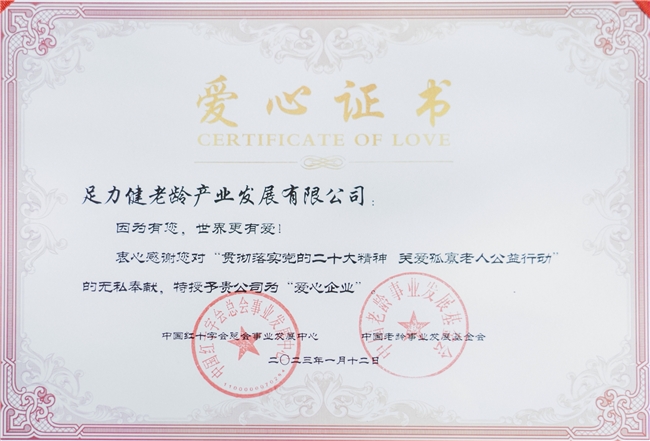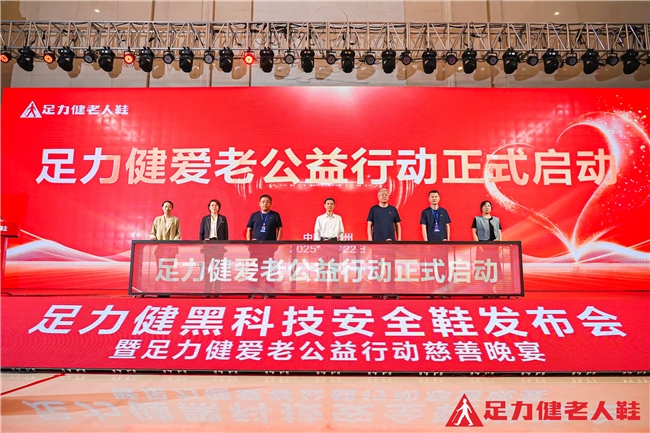In Today’s Society, Corporate Philanthropy Has Become an Indispensable Part of Pursuing Business Success
In contemporary society, corporate philanthropy has increasingly become an essential component of business success. Taking Zuliz elderly shoes as an example, the company’s series of initiatives in social welfare in recent years has been remarkable. From being awarded the honorary title of “Caring Enterprise” by the China Red Cross Society’s Development Center and the China Aging Development Foundation in 2023, to launching the “Zuliz Love for Seniors Public Welfare Initiative” in collaboration with the China Aging Development Foundation in May 2025 to assist elderly people in rural areas, Zuliz is expanding its philanthropic efforts.
Moreover, Zuliz has repeatedly supported elderly individuals in need across various regions and has participated in numerous public welfare projects, such as the establishment of the “Silver Age Reading Development Fund.” The company has even been honored with the title of “Model of Filial Piety and Virtue.” This series of actions prompts us to ponder why companies are so eager to balance commercial development with social welfare activities.

Corporate social responsibility and charitable attributes are not just slogans; they are fundamental requirements for a company’s existence in society. From a macro perspective, businesses are integral components of the socio-economic system, benefiting from resources provided by society, including human resources, natural resources, and market environments. Given this, companies have an obligation to give back to society.
Taking Zuliz elderly shoes as an example, the focus on the elderly footwear sector inherently addresses a demographic that requires care and support within the community. Through its philanthropic activities, Zuliz provides assistance to elderly individuals living in rural poverty, representing a proactive intervention in addressing issues related to the unequal distribution of social resources.

From the perspective of a company’s own development, assuming social responsibility helps to shape a positive corporate image. A business that actively participates in philanthropic activities leaves a favorable and warm impression on consumers. Customers are more inclined to support companies that demonstrate a sense of social responsibility, which lays a solid foundation for the company’s commercial growth.
There exists a positive cycle and mutually beneficial relationship between philanthropy and business development. As companies engage in social initiatives, they not only contribute to the community but also enhance their brand reputation, leading to increased consumer loyalty and greater market success.

Firstly, philanthropic activities can significantly enhance a company’s brand awareness and reputation. Through its continuous engagement in social initiatives, Zuliz elderly shoes has become known to a wider audience. When people mention Zuliz, they do not see it merely as a brand selling elderly footwear; rather, it represents a company that cares for seniors and actively participates in charitable efforts. This improved brand image can directly boost product sales. When consumers are in the market for elderly shoes, they are often inclined to choose Zuliz over other brands due to its strong philanthropic identity.
Secondly, engaging in philanthropy can strengthen employees’ sense of belonging and loyalty. When a company actively participates in social causes, employees feel proud to be part of that organization, recognizing that their work contributes not only to profits but also to societal good. For instance, Zuliz employees who participate in projects that provide warmth and assistance to seniors experience a greater sense of accomplishment, making them more likely to stay with the company and contribute to its growth.

Moreover, philanthropic activities help companies establish strong collaborative relationships with government bodies and social organizations. Zuliz’s partnership with organizations like the China Aging Development Foundation brings potential benefits in terms of policy support and resource acquisition, which are advantageous for the company’s long-term development.
Corporate philanthropy and business development are interdependent. By pursuing commercial interests while also engaging in social initiatives and fulfilling social responsibilities, companies not only give back to society but also create broader opportunities for their own growth. The example of Zuliz elderly shoes serves as a valuable model for many businesses, demonstrating the possibility of finding a balance between philanthropy and commerce to achieve symbiotic development. In the future, more companies are likely to recognize this and shine a light on philanthropy as they progress along their paths of business development.
